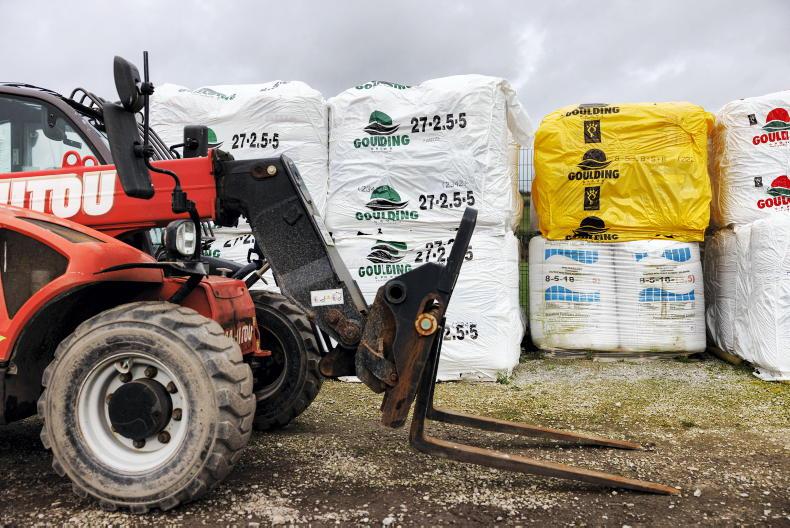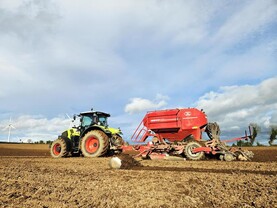Deliveries of fertiliser to NI farms fell by almost 21,000 tonnes (t) during the first quarter of the year, official figures from DAERA show.
From January to March 2022, there were 103,500t of product sold to local farmers, representing a 17% drop on the same period in 2021.
Record high prices have affected both total fertiliser deliveries and the type of product that local farmers are buying. Sales of more expensive compound fertiliser fell by 28% during the first three months of the year to stand at 52,000t.
Ammonium nitrate mixtures, such as CAN, are cheaper and deliveries of these products rose by 9% during the first quarter to reach 34,300t. Sales of urea products dropped by 30% year on year and stood at 10,300t from January to March 2022.
However, local merchants indicate that total fertiliser deliveries for the second quarter of 2022 are set to be down by a much bigger margin.
Little buying activity
There was very little buying activity from local farmers once fertiliser prices rose again in mid-March to leave CAN at over £900/t.
Although prices have since eased back to closer to £650/t, sales have been well down throughout the late spring and early summer.
There is evidence that some farmers forward-bought fertiliser late last year. Deliveries in the final quarter of 2021 were up 37% on the same period in 2020. However, the extra 6,800t of fertiliser that was delivered at the end of 2021 only equates to around 2% of overall sales for a typical year.
Around three-quarters of total fertiliser sales in NI usually happen in the first six months of the year, so overall fertiliser usage in NI during 2022 is set to be down drastically.
The new figures will add to concerns that there could be fodder shortages on some farms during the 2022/23 winter if livestock numbers are not adjusted to match winter feed supplies.
Transparency
Meanwhile, the National Farmers’ Union (NFU) is calling on both the government and industry to build more transparency into the fertiliser market.
“Nitrogen fertiliser supplies are reeling from geopolitical events that have upended the energy markets they are reliant on,” said NFU deputy president Tom Bradshaw.
“There is likely going to be a lack of availability next year and we are urging suppliers to proactively come forward and publish fertiliser prices to give farm businesses maximum time to plan in 2023,” he said.
The NFU also wants options to be put forward which could allow the CF Fertiliser plant near Middlesborough to reopen. Bradshaw said it was “very strange” that fertiliser was not being produced when gas prices appear to be at a seasonal low.






 This is a subscriber-only article
This is a subscriber-only article









SHARING OPTIONS: